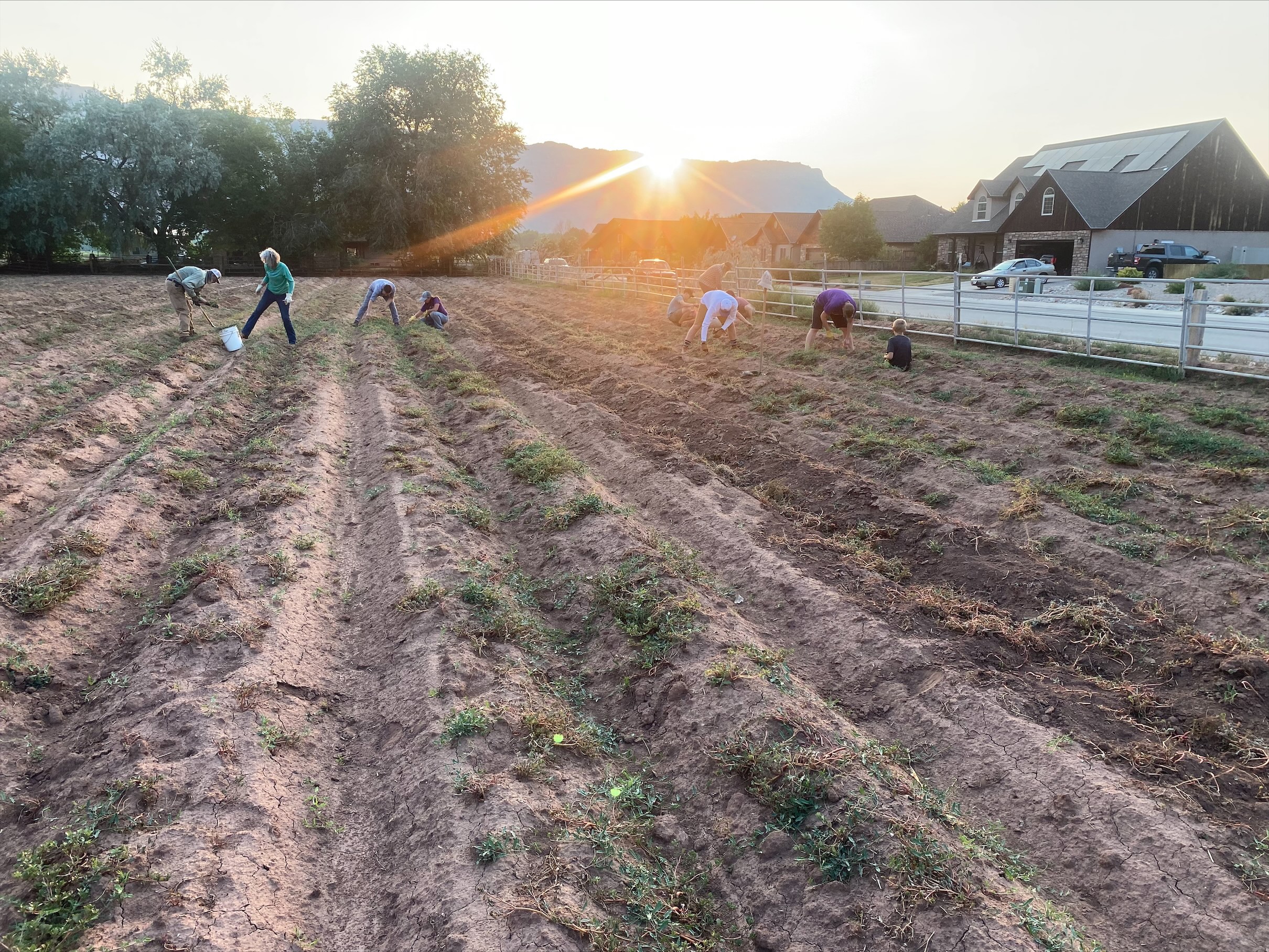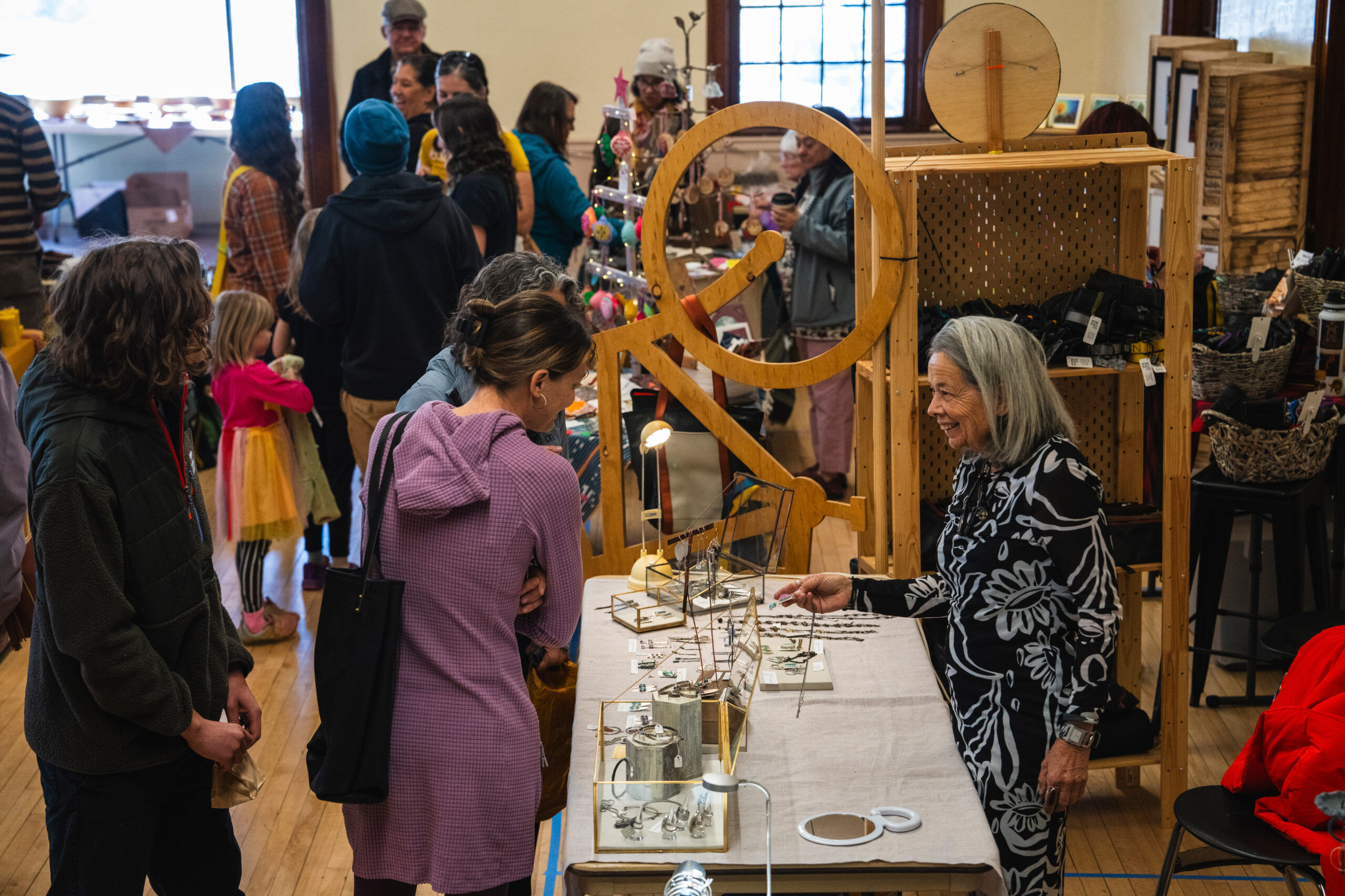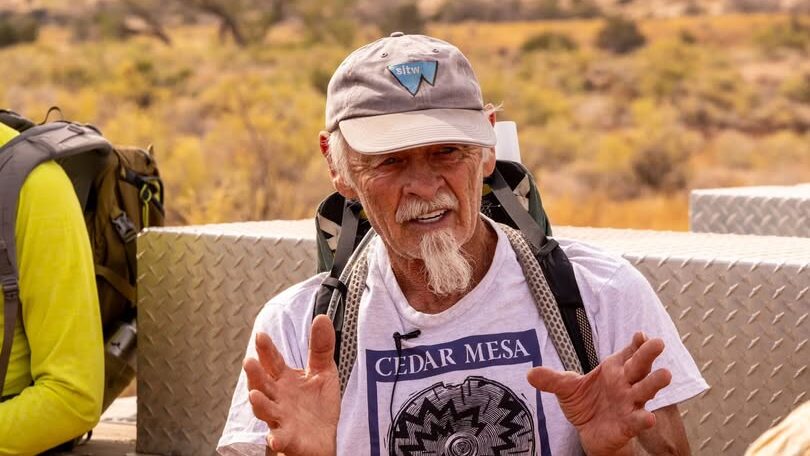Some information may be outdated.
The Moab Seventh-day Adventist Church started its Moab Manna project in the spring of 2020. The global pandemic had prompted mass shut-downs, job losses, and product shortages. Church members brainstormed what they could do to help, and they decided to grow potatoes as a way to prepare for possible food shortages, and to help those who were struggling to weather the early days of pandemic chaos. They secured the use of a vacant lot, bought or borrowed farm equipment, and dove in, learning as they went. They produced about 30,000 pounds of potatoes in 2020, which they donated to community members, food banks, and the Navajo Nation. [See “The Grand Potato Hunt,” Nov. 19, 2020 edition and “Feeding the people,” Apr. 28, 2020 edition. -ed.]
The Seventh-day Adventist Church has planted another round of potatoes this year.
“Our church community had decided that it was such a big project that in some ways we didn’t want to do it again—but we knew we had to do it again because it was such a success,” said Seventh-day Adventist Church Pastor Nathan James.
One of the biggest challenges of the project last year was the rocky soil of the plot where the potatoes were sown. During planting and harvesting, the rocks caused difficulties. Volunteers who came to help harvest combed through the field playing “Rock or potato?”
This year, the church has partnered with Our Village Community Center, a local nonprofit that includes an orchard and farm and provides programming for children and adults. Annie Thomas, director of Our Village, had an unused field available and offered to let the Seventh-day Adventist Church use it for Moab Manna.
“It’s been used for quite a few years for agricultural purposes and the soil quality is fantastic,” James said of the plot. The seed supplier who provided the seeds for Moab Manna this year told James they can expect a harvest similar to last years, of around 30,000 pounds of potatoes.
The potatoes were planted in June. James is excited about this year’s crop. Last year the whole field was planted with russet potatoes; this year, group members planted four varieties of organic potatoes, which James says will offer a higher nutritional value.
“Last year we used organic practices for our growing; now we’re using organic seed and practices,” he said.
The church is in conversation with local nonprofit WabiSabi Thrift Store about possibly using some of the potatoes in its annual community Thanksgiving dinner; the Utah State Food Bank and the Navajo Nation are also likely to accept potatoes this year. Volunteers, both church members and non-church members, have helped with tasks including weeding the field. James recalled a week when significant moisture spurred a proliferation of purslane, a nutritious plant that is nonetheless a weed when it’s growing in a potato field. Moab Manna organizers were wondering if they would be able to recruit volunteers for a weeding session, but were saved the trouble by a group of hungry deer who stripped the field clean of the unwanted purslane.
James the group isn’t planning to just count on the deer to take care of weeding—there will be plenty of volunteer opportunities with Moab Manna.
“We are going to really want and need community participation with the harvest,” James said, which will be in mid- to late October. This year’s harvest will be different from last year’s—the church has access to a harvesting machine that is designed to pick up the potatoes and put them in bins, so people won’t be pulling potatoes out of the dirt like last year.
“We will need people organizing them and packing them into containers and things like that,” however, said James.
The organizers of Moab Manna are excited to put everything they learned from last year’s effort into practice this time around.
“It was a great thing, with the community coming together, and for a first-time agriculture project, when none of us were farmers—it really was a fantastic thing,” said James of the first year of Moab Manna. “We’ve learned a lot from last year. We expect that this year will be better in a lot of ways.” To get involved with the project, call 435-259-5545 or email Nathan James at njames@nevadautah.org.
Appreciate the coverage? Help keep local news alive.
Chip in to support the Moab Sun News.





